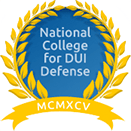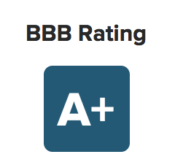Shoplifting is a serious crime that has substantial repercussions. If your child has been charged with shoplifting, you should seek immediate legal advice from an experienced attorney to protect his or her right to a strong defense. The attorneys at the Law Offices of John F. Marshall are dedicated to representing your child’s best interests to the fullest extent. Our criminal defense law firm consists of knowledgeable criminal attorneys, including a former New Jersey prosecutor, who are prepared to defend your son or daughter and provide the legal aid necessary to help avoid a conviction. Our law firm handles shoplifting indictments statewide.
Shoplifting is a serious crime that has substantial repercussions. If your child has been charged with shoplifting, you should seek immediate legal advice from an experienced attorney to protect his or her right to a strong defense. The attorneys at the Law Offices of John F. Marshall are dedicated to representing your child’s best interests to the fullest extent. Our criminal defense law firm consists of knowledgeable criminal attorneys, including a former New Jersey prosecutor, who are prepared to defend your son or daughter and provide the legal aid necessary to help avoid a conviction. Our law firm handles shoplifting indictments statewide, including those filed in Monmouth County, Mercer County, Ocean County, Middlesex County, Union County, Essex County, Somerset County and Hudson County.
NJ Shoplifting Law
A juvenile can be charged with shoplifting under the New Jersey Shoplifting Statute, N.J.S.A. 2C: 20-11, which defines shoplifting as including any of the following acts:
- Purposely taking or carrying away merchandise from a store.
- To purposely conceal on one’s person any merchandise from a store or retail establishment, which deprives the owner of its use or benefit. This also includes converting the use of the item without paying the full value for it.
- To purposely “alter, transfer, or remove” any label, price tag, or indications of value of the merchandise, and to attempt to purchase the item from any store or retail establishment.
- To purposely transfer the merchandise from the container in which it is displayed to another container in order to deprive the merchant of its value.
- To purposely “under-ring” (cause the cash register to indicate a different marked price of the item) in order to deprive the merchant of retail value of an item of merchandise.
- To purposely remove a shopping cart from the premises of a store or retail establishment in order to prevent the owner of the establishment from the benefit or use of the cart.
A merchant or law enforcement officer can take a juvenile into custody for a reasonable period of time if the merchant or officer has probable cause to believe that the juvenile “willfully concealed unpurchased merchandise.” The juvenile can also be arrested if a law enforcement officer believes he or she has committed a shoplifting offense.
Grading of Shoplifting Offense
If a juvenile is charged with shoplifting merchandise with a value of $75,000 or more, it is a second degree offense, and he or she faces up to 3 years in detention. If a juvenile is charged with shoplifting merchandise with a value of more than $500 but less than $75,000, it is a third degree offense, and he or she faces up to 2 years detention. If the value of the merchandise is $200 or more but less than $500, it is a fourth degree offense, and he or she faces up to one year detention. If the merchandise is under $200, it is a disorderly persons offense, and he or she faces up to 6 months detention. It is also a disorderly persons offense if the juvenile possesses or uses an anti-shoplifting device, such as a device that demagnetizes security tags, alters the bar codes on merchandise. It should be noted that first time juvenile offenders usually will not face incarceration for fourth degree offenses or disorderly persons. In determining the degree of the defense, the different items of merchandise taken from different stores in the same incident may be aggregated in order to impose a harsher penalty. For example, if three juveniles agree to shoplift from three different stores in a mall, the prosecutor can aggregate the total amount of those items to determine the degree of the offense. In addition to potential penalty of detention, juveniles convicted of a shoplifting offense also are required to perform a number of hours of community service, depending on whether it is a second, third or fourth degree offense.
Many people do not take shoplifting complaints that seriously but NJ Juvenile Courts are usually adamant about punishing these kinds of offenses to max. If your minor child has somehow become charged or arrested for shoplifting, our criminal lawyers will be more than happy to address your concerns and insure that your child is properly represented. The talented juvenile defense lawyers at the Law Offices of John F. Marshall will be able to obtain a satisfactory disposition for your child and family and are available to appear in Monmouth County, Middlesex County, Ocean County, Union County, Mercer County, Hudson, Essex County, Bergen County and Somerset County. Feel free to contact our office for an initial consultation with an attorney at no cost.
NJ Shoplifting Law
A juvenile can be charged with shoplifting under the New Jersey Shoplifting Statute, N.J.S.A. 2C: 20-11, which defines shoplifting as including any of the following acts:
- · Purposely taking or carrying away merchandise from a store.
- · To purposely conceal on one’s person any merchandise from a store or retail establishment, which deprives the owner of its use or benefit. This also includes converting the use of the item without paying the full value for it.
- · To purposely “alter, transfer, or remove” any label, price tag, or indications of value of the merchandise, and to attempt to purchase the item from any store or retail establishment.
- · To purposely transfer the merchandise from the container in which it is displayed to another container in order to deprive the merchant of its value.
- · To purposely “under-ring” (cause the cash register to indicate a different marked price of the item) in order to deprive the merchant of retail value of an item of merchandise.
- · To purposely remove a shopping cart from the premises of a store or retail establishment in order to prevent the owner of the establishment from the benefit or use of the cart.
A merchant or law enforcement officer can take a juvenile into custody for a reasonable period of time if the merchant or officer has probable cause to believe that the juvenile “willfully concealed unpurchased merchandise.” The juvenile can also be arrested if a law enforcement officer believes he or she has committed a shoplifting offense.
Grading of Shoplifting Offense
If a juvenile is charged with shoplifting merchandise with a value of $75,000 or more, it is a second degree offense, and he or she faces up to 3 years in detention. If a juvenile is charged with shoplifting merchandise with a value of more than $500 but less than $75,000, it is a third degree offense, and he or she faces up to 2 years detention. If the value of the merchandise is $200 or more but less than $500, it is a fourth degree offense, and he or she faces up to one year detention. If the merchandise is under $200, it is a disorderly persons offense, and he or she faces up to 6 months detention. It is also a disorderly persons offense if the juvenile possesses or uses an anti-shoplifting device, such as a device that demagnetizes security tags, alters the bar codes on merchandise. It should be noted that first time juvenile offenders usually will not face incarceration for fourth degree offenses or disorderly persons. In determining the degree of the defense, the different items of merchandise taken from different stores in the same incident may be aggregated in order to impose a harsher penalty. For example, if three juveniles agree to shoplift from three different stores in a mall, the prosecutor can aggregate the total amount of those items to determine the degree of the offense. In addition to potential penalty of detention, juveniles convicted of a shoplifting offense also are required to perform a number of hours of community service, depending on whether it is a second, third or fourth degree offense.
Many people do not take shoplifting complaints that seriously but NJ Juvenile Courts are usually adamant about punishing these kinds of offenses to max. If your minor child has somehow become charged or arrested for shoplifting, our criminal lawyers will be more than happy to address your concerns and insure that your child is properly represented. The talented juvenile defense lawyers at the Law Offices of John F. Marshall will be able to obtain a satisfactory disposition for your child and family and are available to appear in Monmouth County, Middlesex County, Ocean County, Union County, Mercer County, Hudson, Essex County, Bergen County and Somerset County. Feel free to contact our office for an initial consultation with an attorney at no cost.











